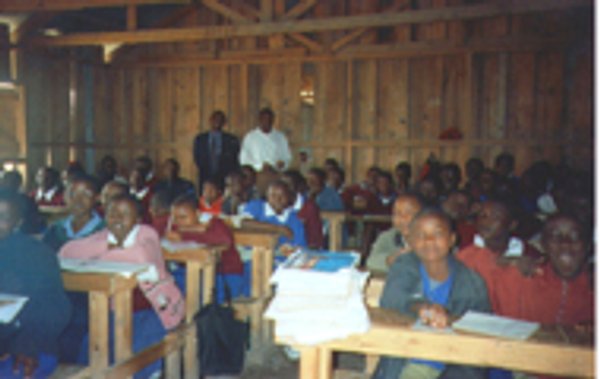Strathmore University is located mid-way between two of the largest slum settlements in Nairobi: Kibera to the north and Mukuru to the south, with a combined population of one million and a quarter.
Strathmore University strives be in constant contact with, abreast of, even ahead of, the social, cultural and economic situation on the ground. Strathmore has been facing this challenge since it opened its doors as a university in 2001. All degree students must pass the compulsory unit, Community Based Attachment, between the first and second years of the course, which consists of 200 hours of service in a hospital, centre for street children, orphanage or primary school in one of the poorer neighbourhoods. They also prepare an academic report on their experience and are assessed on the job. This proved to be such a positive experience, both for the beneficiaries and for the students –for many of whom it was their first encounter with real urban poverty- that we decided to offer the chance of a similar experience to all our students, and staff and ex-students, and which we call volunteer service. As a result, the Community Outreach Programme was born, and since it began a steady stream of volunteers have given service, at least 50 each year completing the full requirement of 150 hours, in many areas of the poverty map ofNairobi.
This initiative had many other possibilities: working with and for the local community; having representation on bodies that help alleviate poverty and other social problems; net-working and partnering with organizations that help empower unemployed youth; creating poverty and social awareness in a variety of ways, etc.
In 2003 the University broke the ice with Madaraka estate, where the campus is situated. The youth leaders identified lack of computer skills as a serious need of the school-leavers in the estate who had not found work or gone ahead for further training. The University organized the full course of basic computer skills, at a special discount rate. Besides equipping the youth, it opened their eyes to the University as the University opened its doors to them. This was followed by a similar course the year after for another group, and a micro-enterprise workshop to enable youth of the estate to set up their own businesses short term or long term. Recently Strathmore formed the Madaraka Neighbourhood Association, which brings together interested parties from the nearby estates every month to solve common problems and maintain good relations.
The staff of Strathmore also network regularly with youth groups, and leaders in the settlements who are trying to help talented young people develop, especially in the area of sports, painting and carving, street youth and reformed street youth with a view to helping them settle and establish themselves in some useful occupation and get out of the syndrome of dependency. The University has a partnership with Kenya Youth Business Trust that helps them identify groups of needy, promising youth who, with a push in the right direction, could start off their own little business concern.
Students are encouraged to suggest initiatives, and some of the student associations work directly with needy institutions, by fund-raising, training of staff, setting up and running the computer, and so on. A young man from Kibera, has started his own youth group and two soccer teams, which he helps train regularly and which he gives talks to on life issues, either himself or by inviting speakers, Another student from Chuka, does something similar with young people in his area. Both with the purpose of keeping disadvantaged young people usefully occupied and giving them some hope of a better future.
These are just a few of the many stories, showing the great potential the Programme has, for the good of the University and the wider community.
